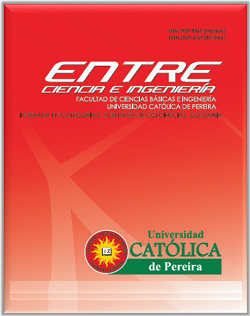Blue Ocean strategy for the port sector (synchromodality and digitization)
DOI:
https://doi.org/10.31908/19098367.1768Keywords:
digitalization, blue ocean, ports, synchro-modalityAbstract
Industry in general and ports in particular are moving towards 4.0 processes. The use of new technologies and new market patterns are the main tools for the success of these processes. The current challenges of the port sector are to develop Smart ports whose main characteristics are defined by digitalization and synchro-modality. Only they allow determining a new scenario in which it is possible to raise the Blue Ocean Strategy, leaving aside competition and looking for a new demand. The growing development of digital techniques and their implementation in port management and transport processes makes this strategy viable on an even greater scale. The general conclusion of the research is that it is possible to apply market strategies to the Spanish port sector with a different methodology to the one used until now. It can be seen that Spanish ports, still have a long way to go in terms of sustainability, understood in three dimensions: economic, social and environmental.
References
Panayides, P. M. “Global supply chain integration and competitiveness of port terminals. In Ports, cities, and global supply chains”. Routledge,2017, pp. 43-56.
Zereik, E., Bibuli, M., Mišković, N., Ridao, P., & Pascoal, A. (2018). Challenges and future trends in marine robotics. Annual Reviews in Control, 46, pp. 350-368.
Heilig, L., Lalla-Ruiz, E., & Voß, S. (2017). Digital transformation in maritime ports: analysis and a game theoretic framework. Netnomics: Economic research and electronic networking, 18(2-3), pp. 227-254.
Heilig, L., Schwarze, S., & Voß, S. “An analysis of digital transformation in the history and future of modern ports”. 2017.
Acciaro, M., Renken, K., & El Khadiri, N. “Technological Change and Logistics Development in European Ports”. In European Port Cities in Transition (pp. 73-88). Springer, Cham. 2020.
Dooms, M., Van Der Lugt, L., Parola, F., Satta, G., & Song, D. W. (2019). The internationalization of port managing bodies in concept and practice. Maritime Policy & Management, 46(5), pp. 585-612.
Tavasszy, L., Behdani, B., & Konings, R. “Intermodality and synchromodality. In Ports and Networks”. Routledge, 2017, pp. 251-266.
Castelein, B., Geerlings, H., & van Duin, R. (2020). The reefer container market and academic research: a review study. Journal of Cleaner Production, 120654. 2020.
Douaioui, K., Fri, M., & Mabrouki, C. “Smart port: Design and perspectives”. In 2018 4th International Conference on Logistics Operations Management (GOL) (pp. 1-6). IEEE.
Dong, C., Boute, R., McKinnon, A., & Verelst, M. (2018). Investigating synchromodality from a supply chain perspective. Transportation Research Part D: Transport and Environment, 61, 42-57.
Zhang, M., & Pel, A. J. (2016). Synchromodal hinterland freight transport: Model study for the port of Rotterdam. Journal of Transport Geography, 52, 1-10.
Dooms, M., Van Der Lugt, L., Parola, F., Satta, G., & Song, D. W. (2019). The internationalization of port managing bodies in concept and practice. Maritime Policy & Management, 46(5), 585-612.
Zhang, X., & Roe, M. “Port Competition. In Maritime Container Port Security”. Palgrave Macmillan, Cham, 2019, pp. 59-85.
Garcia-Alonso, L., Monios, J., & Vallejo-Pinto, J. Á. (2019). Port competition through hinterland accessibility: the case of Spain. Maritime Economics & Logistics, 21(2), pp. 258-277.
Mauborgne, R., & Kim, W. C. (2005). La estrategia del océano azul. Harvard Deusto business review, (131), 22-31.
Kim, W. C., & Mauborgne, R. (2004). La estrategia del océano azul. Harvard Business Review, 82(10), 2004








 Revista Entre Ciencia e Ingeniería
Revista Entre Ciencia e Ingeniería .png) entrecei@ucp.edu.co
entrecei@ucp.edu.co.png) ISSN (Impreso) 1909-8367 - ISSN (En Línea) 2539-4169
ISSN (Impreso) 1909-8367 - ISSN (En Línea) 2539-4169 Attribution-NonCommercial 4.0 International (CC By-NC 4.0)
Attribution-NonCommercial 4.0 International (CC By-NC 4.0)
.png) Carrera 21 No. 49-95 Av. de las Américas, Pereira, Risaralda, Colombia
Carrera 21 No. 49-95 Av. de las Américas, Pereira, Risaralda, Colombia